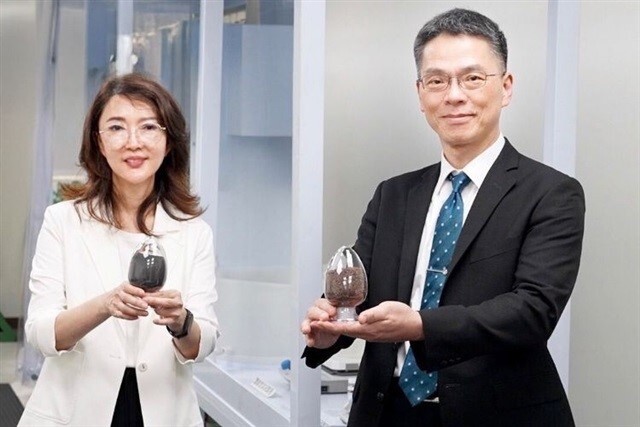您想继续阅读英文文章还
是切换到中文?
是切换到中文?

THINK ALUMINIUM THINK AL CIRCLE

On Tuesday, July 1, Formosa Smart Energy (FSET) announced the completion of Taiwan’s first integrated demonstration line for recycling LFP batteries (Lithium Iron Phosphate batteries), uniting front-end physical crushing with back-end chemical extraction. As the global surge in energy storage systems and electric vehicles (EVs) leads to a growing number of retired batteries, recovering valuable metals like lithium, nickel, cobalt, aluminium, etc., through recycling has become an essential strategy for strengthening supply chain resilience and ensuring resource security worldwide.

By establishing its own demonstration line, FSET has successfully produced battery-grade lithium carbonate suitable for direct use in lithium battery manufacturing. This achievement supports national policies aimed at fostering autonomous recycling and circular economy systems, while advancing the concept of urban mining a key milestone in building a sustainable energy loop.
General Manager Hui-Chi Liu explained that the demonstration line recycles batteries through a process of crushing, screening, and wet extraction to produce high-purity, battery-grade lithium carbonate essential for lithium battery manufacturing. Copper and aluminium are also recovered, processed into ingots and alloys, and reused as industrial materials. Additional byproducts, such as iron-aluminium concentrates, can be repurposed as cement additives, while acid-treated black powder is utilised as metallurgical fuel enabling a fully circular system from battery recycling to raw material production.
Data from the Ministry of Environment (MOENV) reveals that around 28.3 per cent of Taiwan’s waste lithium batteries are currently exported directly, while 71.7 per cent are processed domestically into black powder. However, of that domestic output, 90.3 per cent is re-exported, with only 9.7 per cent retained for local use highlighting a substantial loss of valuable metal resources and the urgent need to build a comprehensive, homegrown recycling and reuse infrastructure.
Also Read: UK recycles 157K tonnes of aluminium packaging in 2024, paving the way for stronger ’25 policies
As precious metals gain importance as strategic global resources, Taiwan’s Ministry of Environment (MOENV) has also proposed new legislation to promote resource circulation and bolster national resource security. To address the growing use of lithium batteries, the government introduced preferential recycling fee rates for secondary lithium batteries starting July 1. This initiative encourages industry participation in recycling and reuse, aiming to establish a local circular system, retain high-value metals at risk of supply disruption, and strengthen Taiwan’s position in the global energy economy.
FSET Chairperson Sandy Wang noted that lithium battery applications have rapidly expanded beyond 3C electronics to include electric vehicles and energy storage, with domestic consumption on the rise. As a result, proper end-of-life recycling and processing of lithium batteries has become an urgent priority. In response, FSET has taken the lead by building Taiwan’s first LFP battery recycling demonstration line, integrating both front-end physical crushing and back-end chemical extraction.
Using physical treatment, FSET extracts black powder from discarded batteries, which is then refined through chemical processes to recover valuable materials such as lithium carbonate and other metals. This closed-loop approach supports Taiwan’s goal of local recycling and reuse while keeping critical resources within the country.
The demonstration line is also equipped for verification and scalability, with plans already in motion for mass production, including new plant construction and capacity planning. It will process retired batteries, production scraps, and defective cells from FSET’s Changhua Coastal Industrial Park facility boosting Taiwan’s battery recycling capabilities and reinforcing both supply chain resilience and resource sovereignty.
Image Source: FSET
Responses








